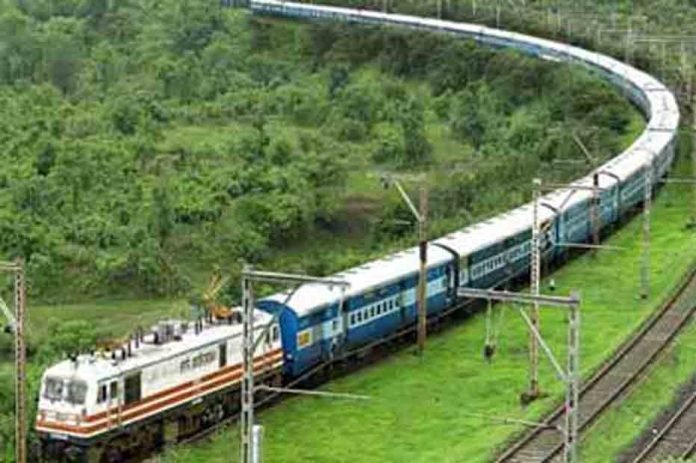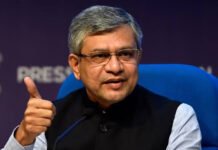New Delhi, October 20, 2025 — As India’s festive season reaches its peak, chaos and overcrowding have gripped the nation’s railway network. Bihar-bound trains are bursting at the seams as lakhs of passengers rush home for Diwali, Chhath Puja, and the upcoming state elections.
Scenes of desperation and frustration unfolded across major railway hubs, including New Delhi, Lucknow, Varanasi, and Patna, where thousands of travelers were seen jostling for a spot inside already-packed trains.
“It’s total mayhem,” said Ravi Kumar, a passenger at Anand Vihar Terminal, struggling to board the Bihar Sampark Kranti Express. “People are hanging from doors, sitting on luggage racks, even climbing onto rooftops. We just want to reach home for Diwali.”
A Perfect Storm: Festivals Meet Politics
This year’s chaos isn’t just about the festive fervor. With Bihar elections approaching next month, the travel rush has intensified. Political rallies, campaign workers, and voters returning home have added to the surge in passenger traffic.
Railway officials admit that the system is under immense pressure. “We are witnessing passenger volumes nearly three times the usual daily average,” said a senior Northern Railway official. “Special trains have been introduced, but the demand is simply overwhelming.”
According to Indian Railways data, over 1.8 million passengers boarded trains from Delhi and adjoining NCR regions to eastern India in just three days. Despite the addition of 35 special services, demand continues to outstrip capacity.
Passengers Cry Foul Over Mismanagement
Social media is flooded with images and videos showing overcrowded stations, people sleeping on platforms, and long queues for ticket counters. Many have accused railway authorities of mismanagement.
“I booked my ticket 20 days ago, but it’s still waitlisted,” said Poonam Devi, a domestic worker traveling to Siwan. “The railways are selling standing tickets while passengers like us suffer.”
In response, Indian Railways has claimed that it is doing everything possible. “We’ve deployed additional coaches, strengthened ticket checking, and coordinated with GRP and RPF for crowd control,” an official statement said.
However, safety experts are warning of potential accidents. Rajesh Aggarwal, a former railway safety advisor, noted, “When overcrowding crosses safe limits, even minor jolts or sudden stops can lead to fatalities. The situation right now is borderline dangerous.”
Festive Travel: A Tradition and a Trial
Every year, millions of Indians return to their hometowns for Diwali and Chhath — festivals deeply rooted in family reunions and religious rituals. But this year’s travel rush has broken all previous records.
At New Delhi Railway Station, an estimated 4.5 lakh passengers boarded trains in a single day. Patna Junction, one of the busiest hubs in the East, recorded over 3 lakh footfalls on Saturday alone.
“It’s a pilgrimage of emotion and exhaustion,” said sociologist Dr. Neha Prasad. “For many, Diwali in their native home isn’t just a choice — it’s an emotional obligation.”
Government and Railways Under Pressure
The Ministry of Railways has instructed zonal offices to deploy emergency staff, open additional booking counters, and ensure sanitation facilities at overcrowded stations. Over 500 railway police personnel have been stationed at high-traffic junctions to manage crowds and prevent stampedes.
Despite these efforts, long delays and cancellations continue. On Sunday, the Magadh Express was delayed by 5 hours, while the Seemanchal Express faced a 4-hour delay due to platform congestion.
The government has also urged citizens to “travel only if necessary” and avoid overcrowded trains. But such appeals have done little to slow the human tide.
The Human Cost of Overcrowding
Beyond inconvenience, the situation has raised concerns over health and safety. With temperatures rising and ventilation limited, conditions inside packed coaches are suffocating. “People faint, children cry, and there’s barely room to stand,” said Rashid Ansari, a passenger traveling from Delhi to Darbhanga.
Railway medical units and NGOs have set up first-aid booths at key stations. Volunteers are distributing water, biscuits, and ORS packets to stranded travelers.
“It’s heartbreaking,” said Ananya Singh, a volunteer with an NGO working at Patna Junction. “Elderly passengers and women with infants are suffering the most. Yet everyone smiles when they talk about reaching home for Chhath. That’s the spirit of India.”
Expert Views: Time for Modernization
Transport experts believe the chaos underscores India’s urgent need for modernized passenger management. “This happens every year, yet systemic solutions remain absent,” said Dr. S. Ramesh, a transportation economist. “We need better forecasting, dynamic ticketing, and high-speed regional corridors to handle festive surges.”
There are proposals to increase special train frequency from major metros like Delhi, Mumbai, and Bengaluru during festive seasons, along with AI-based passenger demand prediction systems — but implementation remains slow.
















